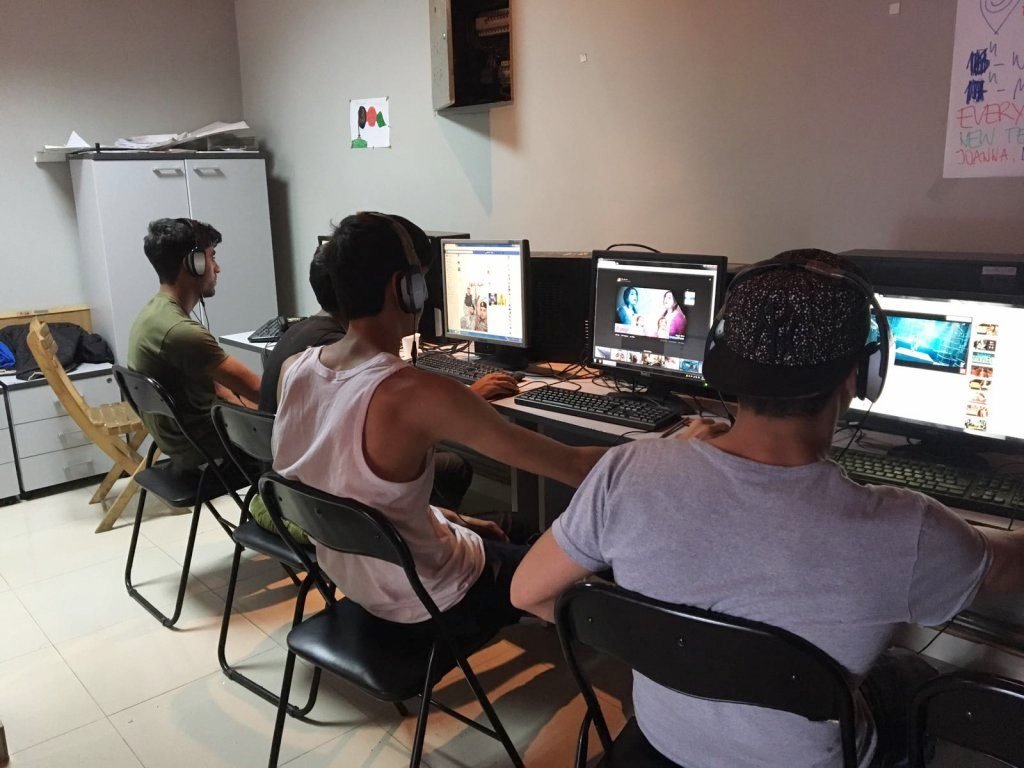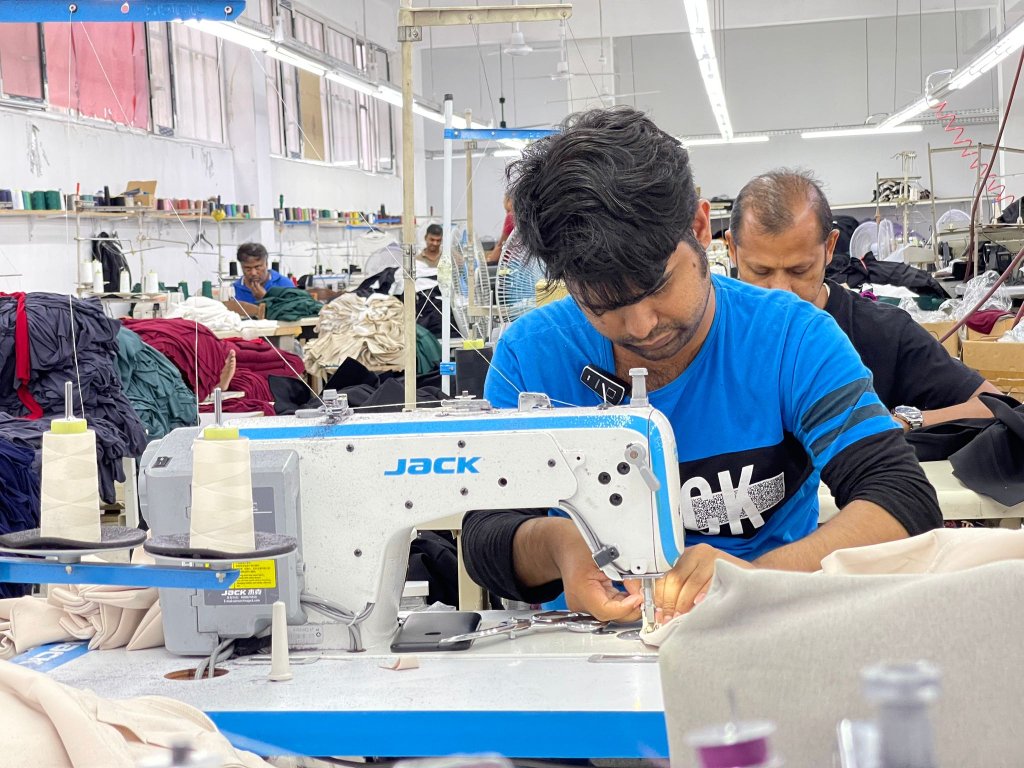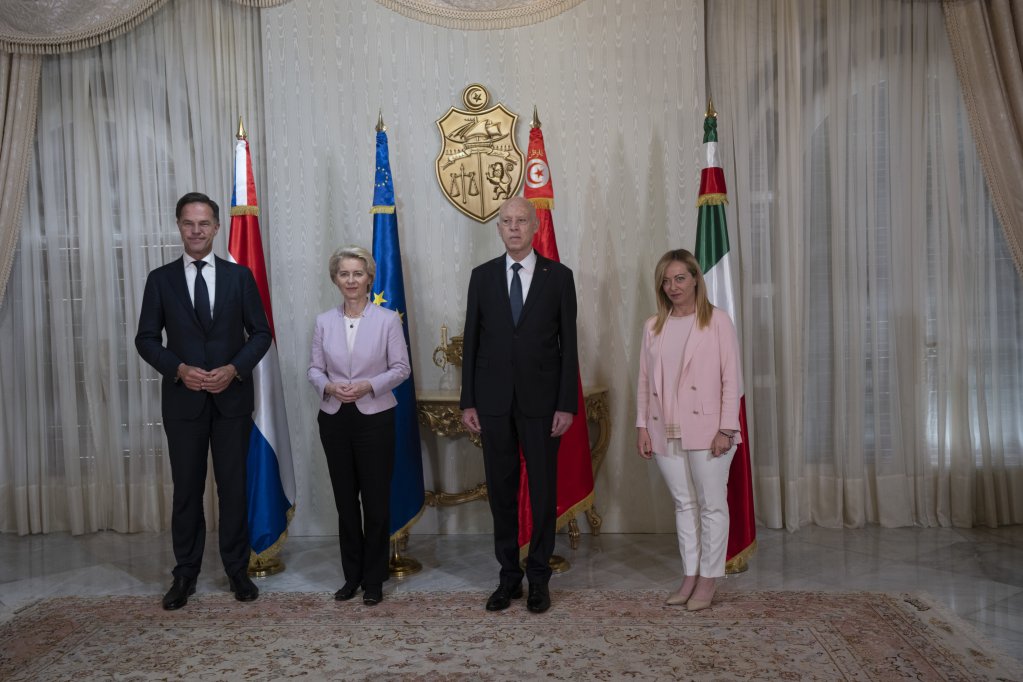The European Commission has launched a series of measures to help attract skills and talent to the EU and help address the critical labor shortages experienced in many countries in the bloc.
The measures include a new EU Talent Pool to match employers in the EU with jobseekers in third countries. This will coincide with measures to promote the recognition of qualifications and learner mobility, according to a press release from the European Commission on Wednesday (November 15).
The pool will be the first EU-wide online platform to bring together the profiles of jobseekers residing outside the EU and job vacancies of EU employers.
"Improving legal pathways is an essential part of the EU’s comprehensive approach to migration set out in the Pact on Migration and Asylum. By facilitating international recruitment, the EU Talent Pool will enable jobseekers from non-EU countries to find a job in the EU, and at the same time, help EU employers to find the talent and skills they need. This will further complement our efforts to make the EU more attractive as a destination for talent, as announced in the Skills and Talent Package," explained the EU's Commissioner for Home Affairs and Migration, Ylva Johansson.
Create a profile
According to the Commission, jobseekers from third countries can create a profile on the platform and provide information on their skills, qualifications, work experience and language knowledge. EU employers will then also advertise their job vacancies on the platform.
Once employed via the EU Talent Pool, third-country nationals would enjoy the same rights and obligations as domestic workers.

The platform will focus on occupations where there are EU-wide shortages and will aim to take in the context of the green and digital transitions.
Many EU countries have a shortage of skilled personnel in a range of sectors. In 2022, the job vacancy rate rose to 2.9% across the bloc, this is already more than double the rate in 2012.
Also read: Germany plans easing asylum seekers access to job market
Millions of jobs needed by 2030
The Commission worries that demographic change, an aging population and fewer babies born will only exacerbate these labor market challenges. In fact, by 2030, the working-age population in Europe will decline to 258 million; in 2022, it stood at 265 million.
In addition, the green transition is expected, states the Commission, to create between 1-1.25 million jobs by 2030. As part of the digital transition, the EU is already 11 million short of the 20 million information and communications technology professionals it hopes to employ by 2030. In total there are 42 EU-wide shortage occupations.
The drive to fill these vacancies starts by upskilling the untapped domestic workforce who are already able to move freely within the EU’s single market. However, an online platform will help match skilled workers from outside with employers, making sure that the EU can attract “skills and talent from all around the world," stated the European Commission.
Also read: Europe searches for ways to balance migration, demographics and economics
Third country partners
Brussels will be negotiating a series of labor migration cooperation agreements with third-country partners, that will not only attract skilled labor to Europe but will also help nurture expertise in the third countries and offer financial support to their home economies too.

The online platform, the so-called EU Talent Pool, says the European Commission’s press release, will be voluntary for member states. Once logged on to the platform, there will also be information on recruitment and migration procedures within each member state. Strong safeguards have also been put in place, states the Commission, to "ensure fair recruitment and working conditions."
Also read: How much immigration does Germany need?
Participants of training under the EU’s Talent Partnership agreements with third countries will receive a Talent Partnership Pass on completion of their courses. These passes will be visible to employers and will certify their qualifications, thus smoothing their course into employment in the EU.
The Commission is currently working on talent partnerships with five partner countries, Egypt, Morocco, Tunisia, Bangladesh and Pakistan.
Smoothing out difficulties in recognition of qualifications
At the moment, particularly in countries like Germany, skilled migrants can find themselves waiting months for their qualifications to be fully recognized, even after they have been recruited.
Anecdotal evidence shows that some nurses for instance, recruited from countries like the Philippines, have had to work for months, sometimes longer as lower paid care assistants because their full nursing qualifications were still in the process of being recognized by the authorities in the state where they had been offered employment.
Also read: Greece, how to apply for a seasonal work visa
Reports on German state TV have repeatedly highlighted recruitment agencies and care facilities which have had to leave people they wanted to employ in their countries of origin for months until the correct bureaucratic processes had been fulfilled allowing them to move to Germany and start work in the sector where they had been recruited.

The EU recognizes that "facilitating the recognition of qualifications and validation of skills gained in non-EU countries is a key enabler for employers seeking skilled workers, and for third-country nationals seeking access to the EU jobs' market, as well as their integration into host societies."
With this new set of measures, the Commission wants to speed up the recognition process and modernize the whole system. They hope that eventually when everything is in place, the process will be more akin to the speed that EU nationals already enjoy when they move from one member state to another.
Learning mobility
Learning mobility is going to be a priority across the bloc. The Commission wants to boost mobility in all areas of education and training. By 2030, the Commission hopes to have at least 25% of higher education graduates moving around the bloc, and 15% for those who have vocational qualifications. Even those with lower levels of education, they hope will start to see that it is possible to move around the EU and aim for 20% of that group.
As part of this learning mobility, the bloc hopes to make Europe a destination for third-country nationals who hope to study in Europe.
Also read: UK relaxes rules for foreign construction workers
The Commission recognizes that international job matching can be complex and costly. They also acknowledge that many employers have a lack of understanding of the kinds of skill sets out there and sometimes a lack of trust in the skills and qualifications gained in third countries. This, says the Commission press release, can be a "significant barrier to talent and skills mobility."
Often, even when third-country nationals are present in the EU, they may be working below their actual qualification level, a phenomenon termed "brain waste" by the EU.
Open to job seekers residing in third countries
The challenges around the recognition of skills and qualifications can often be a practical disincentive to legal migration.
These new measures build on European Commission President Ursula von der Leyen’s State of the Union address in 2022, when she said that Europe needed to become more attractive for skilled workers.

For the moment, states the Commission's press release, the talent pool will only be open to jobseekers from third countries who are outside the EU. Any third-country nationals who are already inside the EEU can use the EURES platform or public employment services to seek employment.
The Commission hopes though that member states will adopt its recommendation to speed up and smooth the recognition process for qualifications of third-country nationals, even when they are already within the bloc.
The talent pool is open to everyone, states the press release. "People in need of international protection residing outside the EU can therefore also apply for jobs they have the skills to carry out." However, a job offer through the talent pool will not generate any right to asylum.
The proposal for this platform will now be negotiated at the European parliament and council level. The Commission aims to support member states' implementation of the recommendation and invites them to set up national initiatives in line with the proposals.
